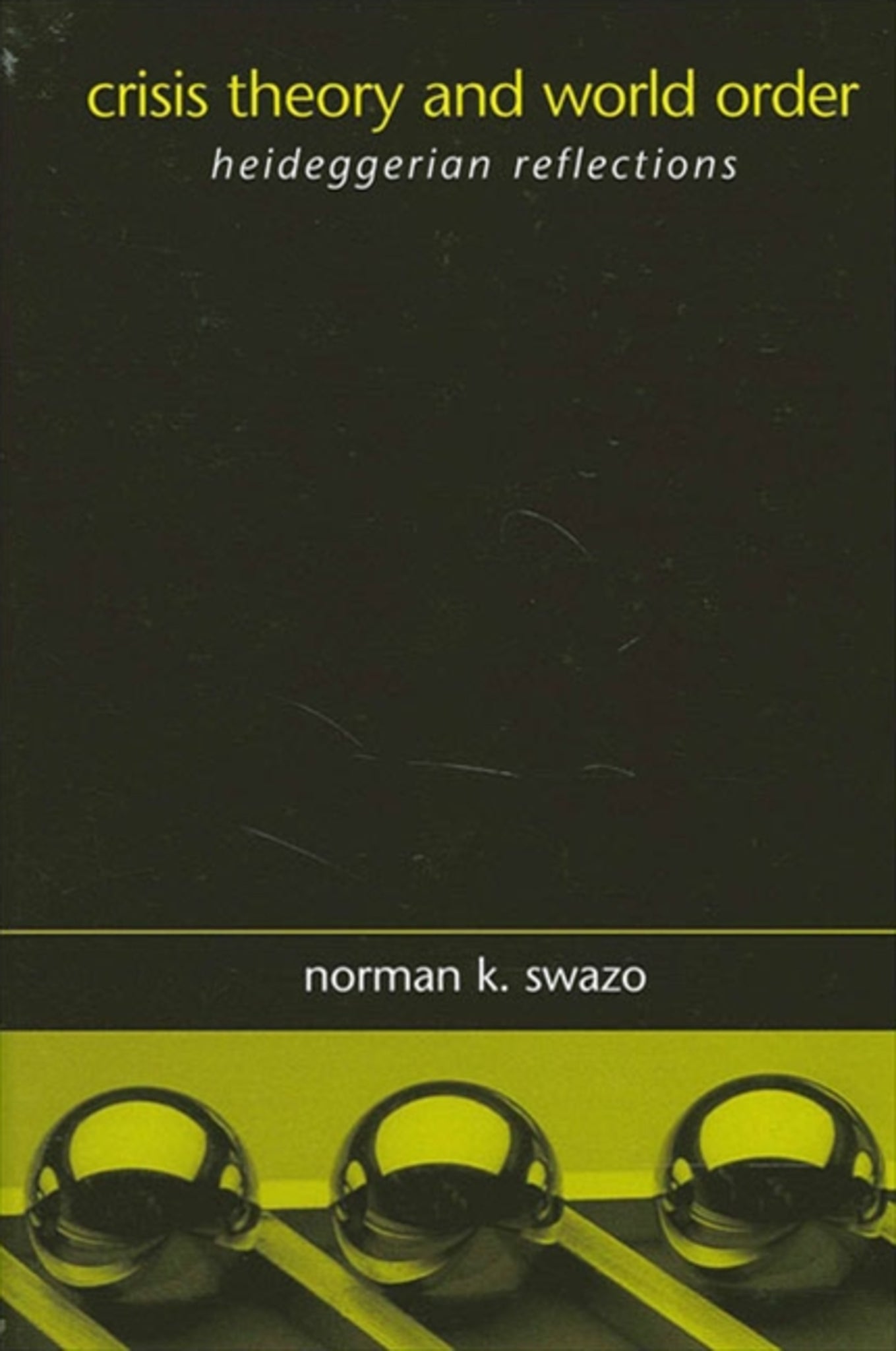We're sorry. An error has occurred
Please cancel or retry.
Crisis Theory and World Order

Some error occured while loading the Quick View. Please close the Quick View and try reloading the page.
Couldn't load pickup availability
- Format:
-
26 September 2002

Uses Heidegger's philosophy to critique and remedy "world order thinking" in international politics.
In a call to planetary thinking, planetary building, and planetary dwelling, Norman K. Swazo discusses Heidegger's thought as it relates to issues of global politics, specifically, the domain of world order studies. In the first division of the book, Swazo provides a theoretical critique of world order studies understood in the two modes of normative and technocratic futurism. The book's second division includes a preliminary attempt to clarify what Heidegger's call for "essential thinking" entails for political thinking. This signifies a new beginning for political discourse, heralded in the possibility of "essential political thinking" that Swazo calls "autarchology."


"The author illuminates in a striking manner the connection between world order thinking in social science and metaphysics in philosophy. Such connections are mainly made by way of Heidegger, whose thought is interpreted with great lucidity, and establishes the importance of taking into account a series of fundamental issues if world order thinking is to become responsive to the challenges confronting humanity. I found this book fascinating." — Richard A. Falk, coeditor of The Constitutional Foundations of World Peace
"This book is meticulous, carefully thought out, and crafted with a sure-footed knowledge of both world order scholarship and Heidegger. His highlighting of notions such as solicitude, authentic self, dwelling on the earth, and meditative rather than rigid, strategic or straight rationalist thinking are important dimensions for all world order scholars to contemplate seriously in their methodological frame." — Saul H. Mendlovitz, editor of On the Creation of a Just World Order: Preferred Worlds for the 1990s
Acknowledgments
Preface
Introduction
PART ONE: THEORETICAL CRITIQUE
1. Crisis Theory: The Challenge to Peace Research
2. The Problem of World Order: Overcoming the Logic of Statecraft
3. The Metaphysical Ground of World Order Thinking
4. Planetary Politics and the Essence of Technology
PART TWO: ESSENTIAL POLITICAL THINKING
5. A Pathway to Essential Political Thinking
6. The Essence of Political Being
Conclusion: Projecting-Open [Entwurf] with Heidegger
Notes
Index



